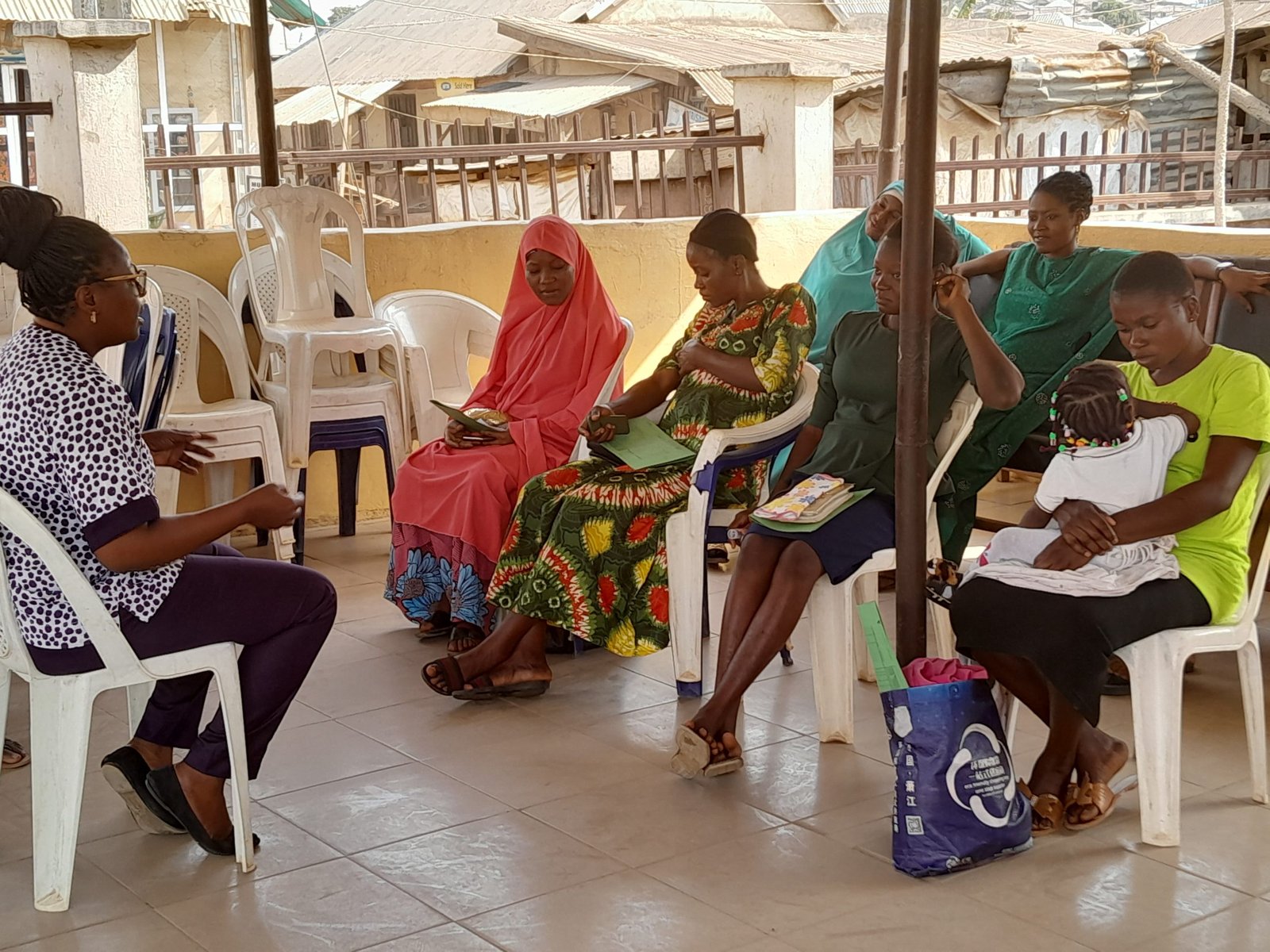
By Miriam Gom
To mother of two Esther, diphtheria sounds like something about nutrition. “Ah! I never heard of this disease before, but I think it is about child nutrition because it sounds like that,” she said with a wry smile that bothers on embarrassment.
Esther’s ignorance is symptomatic of several mothers who were interviewed recently in Abuja by Africa Health Report, AHR.
Despite the fatality rate of this vaccine-preventable disease, a walk to Lugbe a suburb settlement just 15 minutes’ drive from Nigeria’s Federal Capital Territory, shows that about 88% of mothers have little or no knowledge about the existence of the disease diphtheria.
For Amarachi Eze, a 24-year-old expectant mother, diphtheria is a new one. “I have never heard of a disease called diphtheria before and nobody has told me about it since I began antenatal exercise here too. Although this is my first pregnancy but all they tell us about the early child vaccine is to prevent measles and we are educated about malaria”, she explains.
Aisha, a 37-year-old mother of four expressed shock when told of an outbreak of a disease called diphtheria that is claiming lives in some states across Nigeria. She said she was not aware of any disease outbreak in Nigeria aside the Covid-19 pandemic.
Like Aisha, Zulihat Anoz, a petty businesswoman in the area told AHR that she did not know if there were a current disease killing people in any part of the country. “I have not heard of it from anywhere, so I will not be able to identify if someone has it,” she said.
For Kabirat Lawal, a 30-year-old mother of two, all her children were fully vaccinated with the pentavalent vaccine, but she had no idea if the vaccine would protect them against diphtheria.
Lawal said: “I used to vaccinate my kids because my husband said it will prevent them from getting sick easily, but I don’t know if there is a sickness called diphtheria.
“But my brother was telling me there is a new sickness in Kano State that is making people to die fast but I never knew it’s diphtheria”, she told AHR.
Diphtheria, a highly contagious, infectious disease caused by a bacterium called Corynebacterium diphtheriae which makes a toxin that causes people to get very sick. It is fatal in five to 10 per cent of cases, with a higher mortality rate in young children.
By the end of January, statistics had it that no fewer than 38 persons had been killed by the infectious disease, with 123 suspected cases across four states of the federation.
The latest data released by the Nigeria Centre for Disease Control (NCDC), Kano State, recorded the highest with 100 confirmed infections and 32 deaths, followed by Yobe with 17 infections and three deaths.
Data from the NCDC also showed that there was an outbreak of the disease in Borno State in 2011 with a total of 98 cases, and 21 deaths (case fatality ratio was 21.4 per cent).
In an interview with AHR in Abuja, the head of Abuja Municipal Area Council (AMAC) Primary Healthcare Centre, Lugbe, Hajiya Aishatu Babankudi said the Centre, through its outreaches had been able to sensitize the community on the importance of immunization for children from ages zero to two years. Mrs. Babankudi, lamented the level of ignorance among mothers in the community, adding that they would not understand when you talk about diphtheria.
She said: “How do they recognize the case. We will now tell them the sign and symptoms because we cannot just say that this person is having diphtheria. What do they mean by diphtheria in the community?
“As health workers we break it down by telling them about the signs and symptoms to look out for such as thick gray membrane covering the throat and tonsils, a sore throat and hoarseness, enlarged lymph nodes in the neck, fever and chills, etc.
“We also advise them to rush the patient to the hospital when fever persists for more than three days especially when these symptoms are present and to make sure their children are vaccinated up to date”.
This wave of Diphtheria will likely overburden a fragile health system from which huge resources were taken away ostensibly to fight the COVID-19 pandemic.


